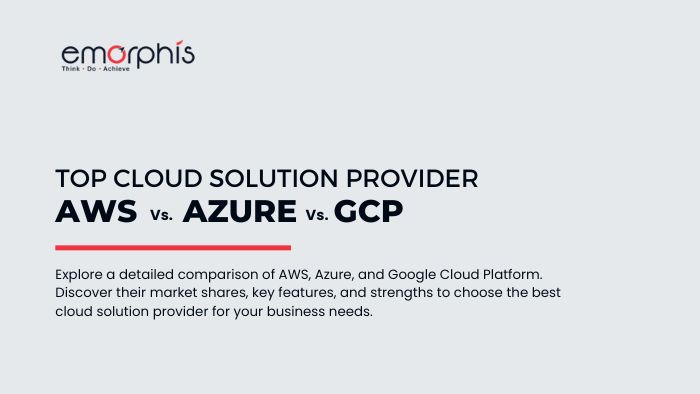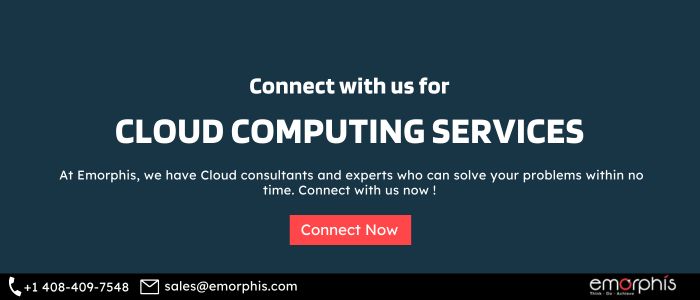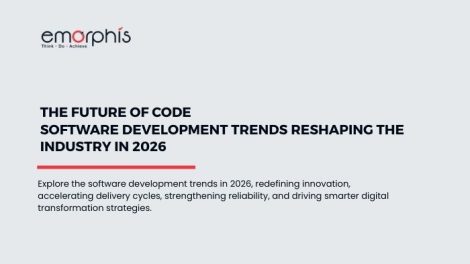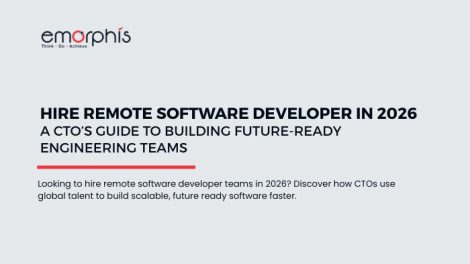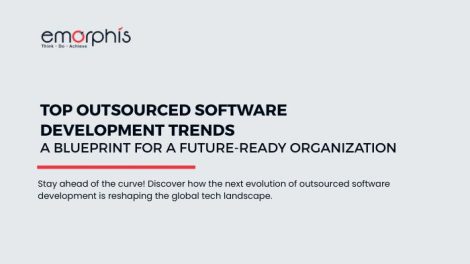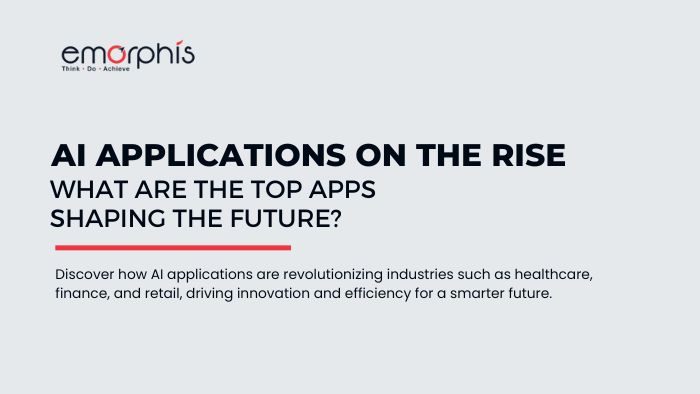Navigating the cloud computing landscape and cloud solution provider? AWS vs. Azure vs. Google Cloud Platform is like picking your dream team from three tech giants, each bringing its own magic to the table—whether you’re after a robust experience, seamless integration, or pioneering innovation.
AWS, Azure, and Google Cloud Platform are the leading providers of cloud computing services, offering a range of solutions for businesses to store, manage, and process data over the internet.
Comparing these platforms is crucial because each offers unique strengths and capabilities that can significantly impact an organization’s efficiency, scalability, and cost management.
By evaluating factors such as market share, service offerings, integration capabilities, pricing models, and support for emerging technologies, businesses can make informed decisions about which platform best meets their specific needs.
This comparison helps organizations align their cloud strategy with their overall business goals, ensuring they leverage the most suitable and cost-effective cloud solutions for their operations.
Amazon Web Services (AWS) holds the largest market share in the cloud computing industry, commanding approximately 32-34% of the global market as of 2024. AWS’s dominance is attributed to its early entry into the cloud market, comprehensive suite of services, and robust global infrastructure.
With data centers across multiple regions and a vast array of services that cater to various industries, AWS has established itself as the go-to cloud provider for enterprises, startups, and government organizations alike.
Its strong market position is further reinforced by continuous innovation, an extensive partner ecosystem, and a proven track record of reliability and performance.
Microsoft Azure is the second-largest player in the cloud computing market, with a market share of around 20-22% as of 2024. Azure’s growth has been fueled by its seamless integration with Microsoft’s widely used enterprise products, such as Windows Server, SQL Server, and Office 365. Azure’s strong emphasis on hybrid cloud solutions, which enable businesses to run workloads across on-premises data centers and the cloud, has also contributed to its popularity.
Additionally, Azure’s robust offerings in artificial intelligence, machine learning, and the Internet of Things (IoT) have attracted a diverse range of customers. Microsoft’s extensive global sales force and enterprise relationships have further bolstered Azure’s market position.
Google Cloud Platform (GCP) holds a smaller but growing share of the cloud computing market, estimated to be around 10-12% as of 2024. GCP’s strengths lie in its data analytics and machine learning capabilities, with services like BigQuery and TensorFlow being highly regarded in the industry.
Google’s focus on innovation and open-source technologies has also attracted a dedicated customer base, particularly among data scientists and developers. GCP’s competitive pricing, high-performance infrastructure, and global network of data centers make it a compelling choice for businesses looking to leverage advanced analytics and AI.
Although GCP’s market share is smaller compared to AWS and Azure, its continuous investment in expanding its service offerings and improving customer experience indicates potential for significant growth in the future.
When it comes to cloud computing, AWS, Azure, and Google Cloud Platform are the superheroes of the digital realm, each boasting its own unique set of superpowers.
Curious about which cloud hero will save your tech day?
Get ready as we dive into this epic cloud showdown!
Comparing Key Features in Cloud Computing Services

1. Computing Power
AWS
- Instance Types: Offers a wide range, including general-purpose, compute-optimized, memory-optimized, and GPU instances.
- Elastic Compute Cloud (EC2): Highly configurable virtual servers with autoscaling capabilities.
- Lambda: Enables serverless computing, allowing code execution without the need for server provisioning or management.
Azure
- Virtual Machines: Wide range of VM sizes and types, optimized for various workloads.
- Azure Functions: Serverless compute service that enables you to run event-driven code.
- Azure Kubernetes Service (AKS): A managed Kubernetes service designed for containerized applications.
GCP
- Compute Engine: Customizable VMs with predefined and custom machine types.
- Google Kubernetes Engine (GKE): Managed Kubernetes service with robust scalability and reliability.
- Cloud Functions: Event-driven, serverless computing service.
2. Storage Solutions
AWS
- Simple Storage Service (S3): Highly durable and scalable object storage with various storage classes.
- Elastic Block Store (EBS): Block storage for use with EC2 instances, offering high performance and reliability.
- Glacier: Low-cost archival storage with retrieval times ranging from minutes to hours.
Azure
- Blob Storage: Object storage solution for unstructured data, supporting hot, cool, and archive tiers.
- Azure Disk Storage: Managed disk storage options for VMs, with high-performance SSD and HDD options.
- Azure Data Lake Storage: Scalable data lake for big data analytics.
GCP
- Cloud Storage: Unified object storage with multi-region, dual-region, and regional options.
- Persistent Disks: Durable block storage for VM instances with SSD and HDD options.
- Nearline and Coldline Storage: Cost-effective storage for infrequently accessed data.
3. Databases
AWS
- Relational Database Service (RDS): Managed relational databases, including MySQL, PostgreSQL, and Oracle.
- DynamoDB: Fully managed NoSQL database service for low-latency and high-performance applications.
- Aurora: A MySQL and PostgreSQL-compatible relational database providing high availability and performance.
Azure
- SQL Database: Managed relational database service with built-in intelligence and scalability.
- Cosmos DB: Globally distributed, multi-model database with low-latency access.
- Azure Database for MySQL/PostgreSQL: Fully managed relational databases.
GCP
- Cloud SQL: Managed relational databases, including MySQL, PostgreSQL, and SQL Server.
- BigQuery: A fully managed data warehouse designed for large-scale data analytics.
- Firestore: A NoSQL document database for mobile, web, and server development.
4. Networking
AWS
- Virtual Private Cloud (VPC): Isolated network environments with granular control over networking components.
- Route 53: Scalable DNS and domain name registration service.
- Direct Connect: Provides a dedicated network connection from your premises to AWS.
Azure
- Virtual Network (VNet): Isolated network environment with robust networking features.
- Azure DNS: Reliable and secure DNS service.
- ExpressRoute: Private connection from your data center to Azure.
GCP
- Virtual Private Cloud (VPC): Global, scalable, and flexible network environment.
- Cloud DNS: High-performance, resilient DNS service.
- Cloud Interconnect: High-bandwidth, low-latency connectivity to GCP.
5. Security
AWS
- Identity and Access Management (IAM): Granular access control and identity management.
- AWS Shield: Managed DDoS protection service.
- AWS Key Management Service (KMS): A managed service for creating and controlling encryption keys.
Azure
- Azure Active Directory: An identity and access management service.
- The Azure Security Center: Offers unified security management and advanced threat protection.
- Key Vault: Securely manage keys, secrets, and certificates.
GCP
- Identity and Access Management (IAM): Provides fine-grained access control and visibility.
- Google Cloud Armor: Offers DDoS protection and a web application firewall.
- Cloud Key Management: Managed service for encryption keys.
6. Machine Learning and AI
AWS
- SageMaker: Comprehensive service to build, train, and deploy machine learning models.
- Rekognition: Image and video analysis service.
- Comprehend: Natural language processing service.
Azure
- Azure Machine Learning: End-to-end machine learning service for data scientists and developers.
- Cognitive Services: Pre-built APIs for vision, speech, language, and decision-making.
- Bot Service: Platform for building intelligent bots.
GCP
- AI Platform: Managed service for building and deploying machine learning models.
- AutoML: Tools for training high-quality custom machine learning models.
- Cloud Vision API: Image analysis and recognition service.
7. Developer Tools and DevOps
AWS
- CodeStar: Unified interface for developing, building, and deploying applications.
- CodePipeline: A continuous integration and continuous delivery (CI/CD) service.
- Cloud9: An integrated development environment (IDE) in the cloud.
Azure
- Azure DevOps: Comprehensive set of development tools for planning, developing, and deploying applications.
- Visual Studio App Center: Services for building, testing, and monitoring mobile and desktop applications.
- Azure Pipelines: A CI/CD service supporting multiple languages and platforms.
GCP
- Cloud Build: The continuous integration service that builds and tests applications in the cloud.
- Source Repositories: Private Git repositories hosted on GCP.
- Cloud Deployment Manager: An infrastructure deployment service using templates.
By evaluating these key features across AWS, Azure, and GCP, you can better understand which cloud computing services best align with your specific business needs and goals. Each platform offers unique strengths and capabilities, making the choice dependent on factors such as existing infrastructure, workload requirements, and budget considerations.
Hence summarizing all three we can state the following.
Summary of Top Cloud Solution Provider
Amazon Web Services (AWS)

AWS is a premier cloud platform providing over 200 services globally. It covers a range of needs including computing, storage, databases, machine learning, and analytics. Key features of this cloud solution provider include EC2 for various instance types, Lambda for serverless computing, and Elastic Beanstalk for application deployment. Storage options include S3 for scalable object storage, EBS for block storage, and Glacier for archival. AWS is known for its extensive services and global reach, though its pricing and complexity can be challenging.
Microsoft Azure

Azure integrates well with Microsoft products and provides a broad range of services such as virtual machines, databases, AI, and machine learning. As a cloud solution provider, it features Azure Functions for serverless computing and Azure Kubernetes Service (AKS) for container management. Storage options include Blob Storage for unstructured data and Data Lake Storage for big data. Azure’s strong integration with Microsoft tools and enterprise solutions makes it a strong contender, though its complexity and costs can be drawbacks.
Google Cloud Platform (GCP)
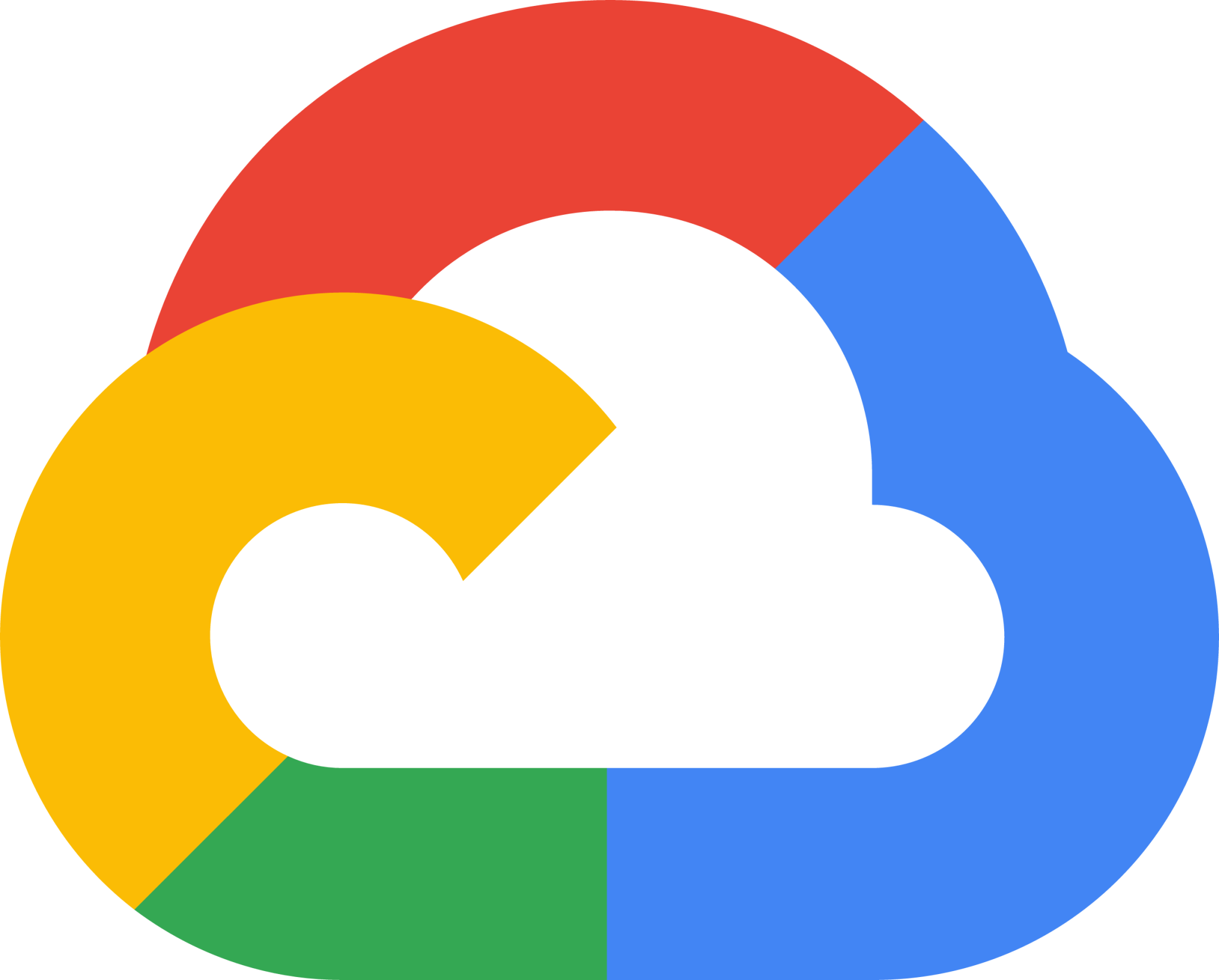
GCP excels in data analytics and machine learning. As a cloud solution provider, it offers customizable VMs through Compute Engine, a managed Kubernetes service with Google Kubernetes Engine (GKE), and serverless computing with Cloud Functions. For storage, GCP provides Cloud Storage with multiple availability options, Persistent Disks, and cost-effective Nearline and Coldline Storage. Databases include Cloud SQL and BigQuery for data warehousing, while Firestore serves as a NoSQL database. GCP’s competitive pricing and innovation make it appealing, despite its smaller market share and slower enterprise adoption.
Comparison of Top Cloud Solution Provider’s in table format
Category | AWS | Azure | GCP |
Computing Power | Instance Types: Wide range including general-purpose, compute-optimized, memory-optimized, and GPU instances. Elastic Compute Cloud (EC2): Highly configurable virtual servers with autoscaling capabilities. Lambda: Serverless computing enabling code execution without server provisioning or management. | Virtual Machines: Wide range of VM sizes and types, optimized for various workloads. Azure Functions: Serverless compute service for event-driven code. Azure Kubernetes Service (AKS): Managed Kubernetes service for containerized applications. | Compute Engine: Customizable VMs with predefined and custom machine types. Google Kubernetes Engine (GKE): Managed Kubernetes service with robust scalability and reliability. Cloud Functions: Event-driven, serverless computing service. |
Storage Solutions | Simple Storage Service (S3): Highly durable and scalable object storage with various storage classes. Elastic Block Store (EBS): Block storage for EC2 instances, offering high performance and reliability. Glacier: Low-cost archival storage with retrieval times ranging from minutes to hours. | Blob Storage: Object storage for unstructured data, with hot, cool, and archive tiers. Azure Disk Storage: Managed disk storage options for VMs, with high-performance SSD and HDD options. Azure Data Lake Storage: Scalable data lake for big data analytics. | Cloud Storage: Unified object storage with multi-region, dual-region, and regional options. Persistent Disks: Durable block storage for VM instances with SSD and HDD options. Nearline and Coldline Storage: Cost-effective storage for infrequently accessed data. |
Databases | Relational Database Service (RDS): Managed relational databases including MySQL, PostgreSQL, and Oracle. DynamoDB: Fully managed NoSQL database service for low-latency and high-performance applications. Aurora: MySQL and PostgreSQL-compatible relational database providing high availability and performance. | SQL Database: Managed relational database service with built-in intelligence and scalability. Cosmos DB: Globally distributed, multi-model database with low-latency access. Azure Database for MySQL/PostgreSQL: Fully managed relational databases. | Cloud SQL: Managed relational databases including MySQL, PostgreSQL, and SQL Server. BigQuery: Fully managed data warehouse designed for large-scale data analytics. Firestore: NoSQL document database for mobile, web, and server development. |
Networking | Virtual Private Cloud (VPC): Isolated network environments with granular control over networking components. Route 53: Scalable DNS and domain name registration service. Direct Connect: Dedicated network connection from your premises to AWS. | Virtual Network (VNet): Isolated network environment with robust networking features. Azure DNS: Reliable and secure DNS service. ExpressRoute: Private connection from your data center to Azure. | Virtual Private Cloud (VPC): Global, scalable, and flexible network environment. Cloud DNS: High-performance, resilient DNS service. Cloud Interconnect: High-bandwidth, low-latency connectivity to GCP. |
Security | Identity and Access Management (IAM): Granular access control and identity management. AWS Shield: Managed DDoS protection service. AWS Key Management Service (KMS): Managed service for creating and controlling encryption keys. | Azure Active Directory: Identity and access management service. Azure Security Center: Unified security management and advanced threat protection. Key Vault: Secure management of keys, secrets, and certificates. | Identity and Access Management (IAM): Fine-grained access control and visibility. Google Cloud Armor: DDoS protection and web application firewall. Cloud Key Management: Managed service for encryption keys. |
Machine Learning and AI | SageMaker: Comprehensive service for building, training, and deploying machine learning models. Rekognition: Image and video analysis service. Comprehend: Natural language processing service. | Azure Machine Learning: End-to-end machine learning service for data scientists and developers. Cognitive Services: Pre-built APIs for vision, speech, language, and decision-making. Bot Service: Platform for building intelligent bots. | AI Platform: Managed service for building and deploying machine learning models. AutoML: Tools for training high-quality custom machine learning models. Cloud Vision API: Image analysis and recognition service. |
Developer Tools and DevOps | CodeStar: Unified interface for developing, building, and deploying applications. CodePipeline: Continuous integration and continuous delivery (CI/CD) service. Cloud9: Integrated development environment (IDE) in the cloud. | Azure DevOps: Comprehensive set of development tools for planning, developing, and deploying applications. Visual Studio App Center: Services for building, testing, and monitoring mobile and desktop applications. Azure Pipelines: CI/CD service supporting multiple languages and platforms. | Cloud Build: The continuous integration service that builds and tests applications in the cloud. Source Repositories: Private Git repositories hosted on GCP. Cloud Deployment Manager: Infrastructure deployment service using templates. |
Disclaimer: The images and details provided in this content are for informational purposes only. While every effort has been made to ensure accuracy and relevance, the visual representations and data may not reflect the most current developments or specifications. All trademarks, product names, and company logos used in this material are the property of their respective owners.
Conclusion
In today’s fast-paced tech world, choosing the right Cloud Solution Provider is crucial for businesses looking to scale, enhance efficiency, and leverage cutting-edge innovations. Cloud solutions from a reliable Cloud Solution Provider offer a flexible and cost-effective approach to accessing essential resources like storage, processing power, advanced analytics, and AI.
Whether you require a robust infrastructure or a comprehensive suite of services to propel digital transformation, a Cloud Solution Provider delivers unparalleled benefits in scalability, accessibility, and operational agility.
Partnering with a Cloud Solution Provider ensures you receive the expertise and tools needed to tailor cloud solutions to your specific needs. This strategic ally helps you optimize performance, manage costs effectively, and stay ahead of technological advancements. With deep knowledge of various cloud platforms and technologies, a Cloud Solution Provider guides you in making informed decisions and implementing strategies to meet your cloud goals.
For those looking to unlock the full potential of cloud computing, Emorphis Technologies shines as a trusted Cloud Solution Provider. With extensive experience and a commitment to tailored cloud solutions, Emorphis Technologies is equipped to guide you through cloud adoption and management.
Connect with Emorphis Technologies to explore how their cloud solutions can enhance your business, streamline operations, and drive growth.
Further, click the link to read details on the Top 10 Trends in Cloud Application Development.



